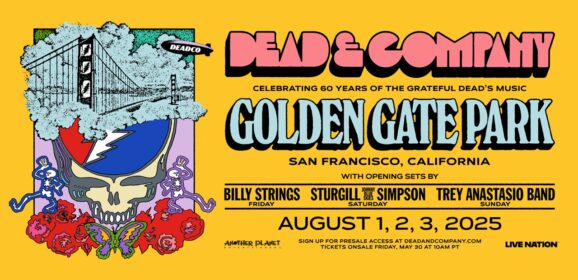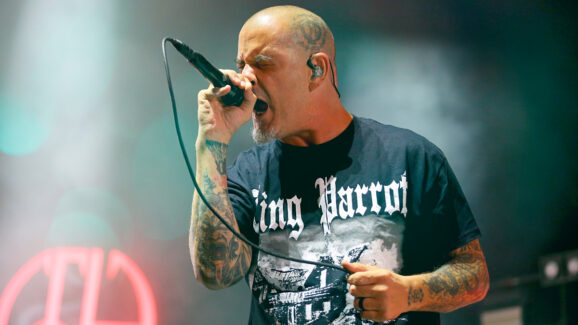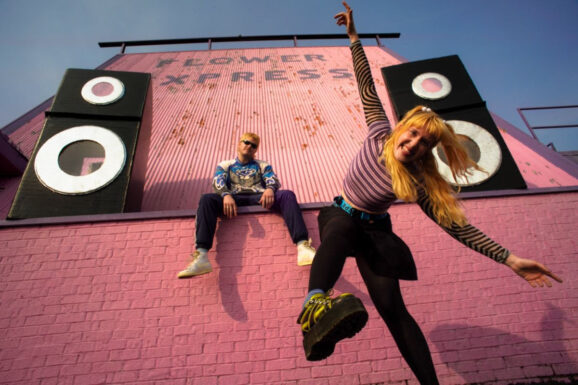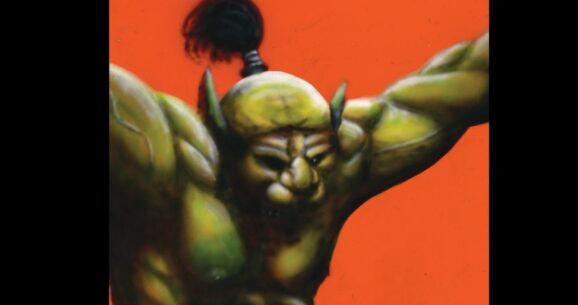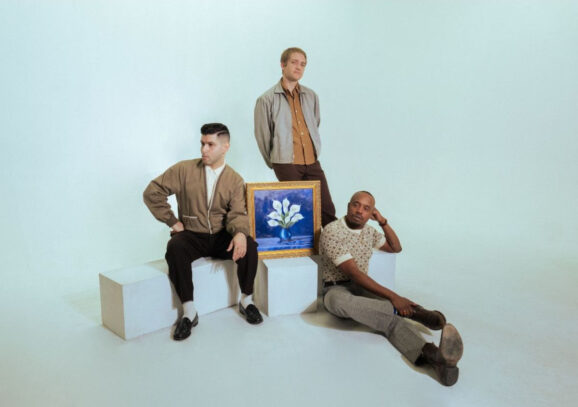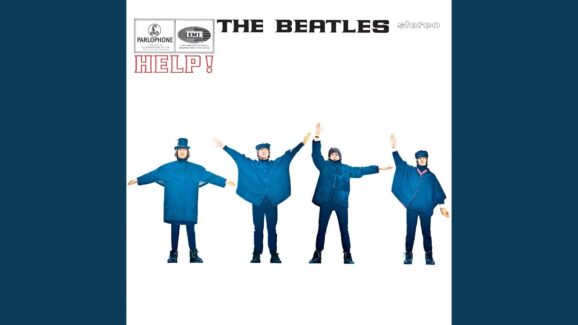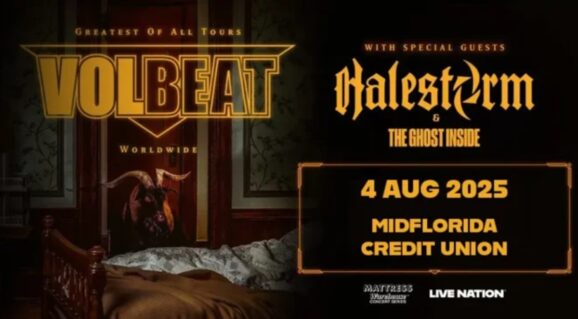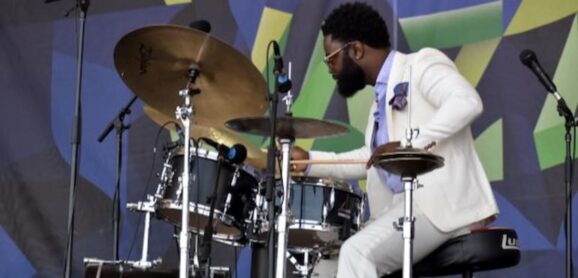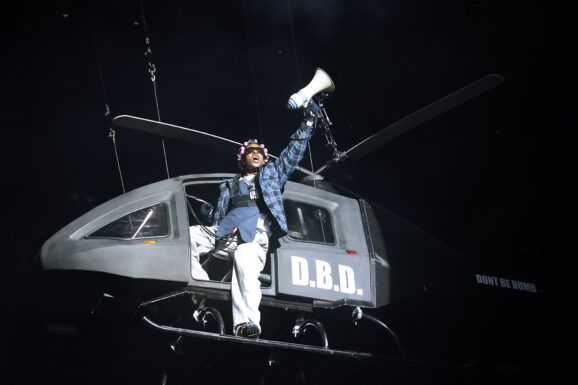There has been a lot of commotion, both exciting and concerning, happening in the modern soul music pantheon. While this revivalist movement has gifted us some criminally smooth and unforgettable records, the concern stems from a lack of innovation. At this point, the modern soul movement has become somewhat overpopulated with nostalgic purists, which is what makes a band like Durand Jones and The Indications such a vital organ for the scene. Along with being one of the founding fathers of this soul explosion, the band has equally pushed the envelope to new heights with nuanced fusion work and a poetic approach to collaboration.
Durand Jones & The Indications continue their career with Flowers, the 11-song LP that was released in June. The anticipated project didn’t disappoint, but it also proved something far more critical than the fact that Jones and his bandmates have struck soulful gold. Flowers is a modern soul marvel being birthed out of innovation that can only be achieved by ego-less collaboration, something Jones and his bandmates, Aaron Frazer and Blake Rhein, have perfected over their tenure as a band. The trio, along with Steve Okonski and Michael Isvara Montgomery, carved a simplistic yet potent lane for themselves, and that organic individuality shines brighter than ever on Flowers.
The new album is highlighted by moments like the bright and warm “Flower Moon,” the heartbreaking, jazzy poetry of “I Need The Answer,” and cinematic harmonies like the ones found on “Rust and Steel.” The band never sugarcoats their music, but rather the immense effort comes from seeing the underlying beauty of life’s turbulence, allowing an authenticity that is hard to find to flow through the band’s music. With a major tour set to kick off this fall, a stellar new album, and a freeing sense of confidence, Durand Jones and The Indications seemingly found comfort in their rising star. Glide had the pleasure of catching up with Jones, Frazer, and Rhein to discuss Flowers, the band’s growing collaboration, and the exciting plans for their upcoming tour. You can read our whole conversation below.
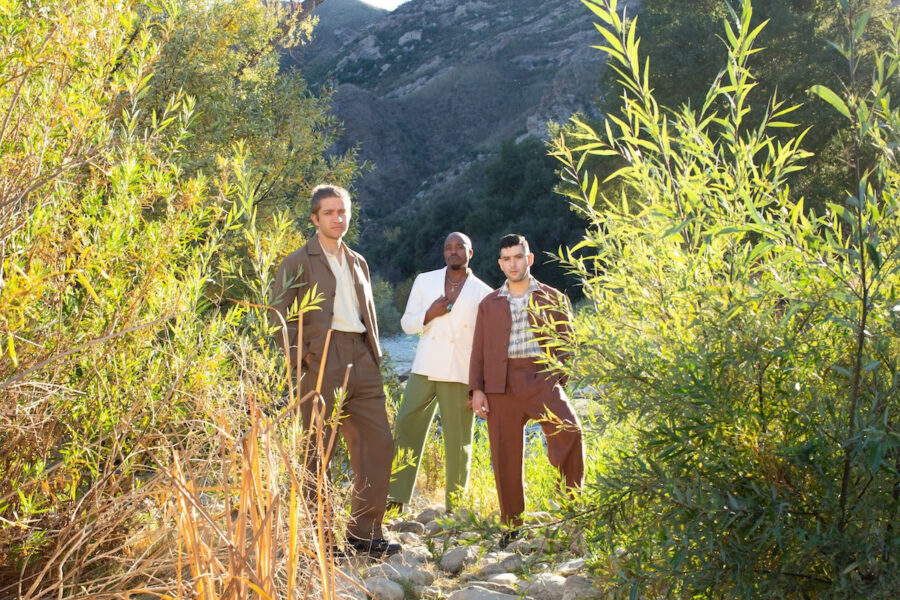
Flowers has been out for a few weeks now. How are you feeling about the reception?
Aaron: The reception has been really awesome. The intention was not to overthink the record, but just make a Durand Jones & The Indications record. It’s a welcome return; people seem really happy that we’re back and making music. I’ve been really happy that people have been finding their way to songs like “Rust and Steel” and “Without You.” Those are late on the record, and so often people don’t listen all the way through. Those, to me, are really strong, classic Durand Jones & The Indications vibes. It’s been fun to watch people enjoying those.
You guys recorded this latest album in a home studio, similar to how the first Durand Jones & The Indications records were made. What inspired you to get back to your roots in that way?
Blake: We started writing the record at my studio in Chicago. I have a little home studio here, and I think that was the element that resembled the first record; just us working in a home studio for a lot of it. We talked about going into it, like on American Love Call or Private Space, we would record a bunch of demos, then go into the studio and record it for real. There were moments in that process where we had demo-itis, where we were worrying a lot about trying to recreate the demo in the studio. This time around, if we had a demo we liked, we would use it and work with that. There are a few songs on Flowers where that was the case.
Has your approach to collaborating with each other changed since those earlier days of the band?
Durand: I think the collaboration has gotten a lot better since the early days. I think what was needed for that to happen was for us to really be mature musically. I think that took us getting out of our respective comfort zones and learning things with each other and apart from each other. That really showed our strengths individually and collectively. I really feel like that shows on this project more than the others.
Speaking of branching out, everyone ventured into solo material after the band’s 2021 LP. What is it like coming back together as a group after working on your own? Is there any transition period before you guys find that groove again?
Aaron: I feel like the chemistry is always there; it’s gotten enhanced by us being able to bring some unique experiences back to this shared table. For years, everything we were learning we were learning together, but when you have a little bit of space to go off and experiment on your own, it exponentially increases how much the group is learning. Over the course of this album process, there were times when we employed studio techniques that Durand had picked up during his solo album process, there were times we were relying on Blake’s production techniques that he’s developed working on his Patchwork project, and other times we were using approaches to production that I learned from Alex Goose while working on Into The Blue. At the end of the day, it’s still the same collective that started in Bloomington, but we’re just adding these layers of evolution by giving ourselves the space to experiment.
Aaron, Glide interviewed you about your last solo album, and in the interview, you mentioned how “This chapter of the soul revival has been going on longer than the years it’s referencing.” Was there a conversation amongst you guys about trying to do something different with Flowers and take the modern soul scene in a different direction?
Aaron: I mean, it’s something we talk about for sure. We talk about it often. The thing that makes this unit really unique is our blend of eclecticism. We all listen to a lot of different music, and there are a ton of shared areas in our listening, but just different elements that we bring to the table. Naturally, on this record, when we decided to work from an intuitive place and not as much a direct referential place, that eclecticism yields a final product that is different than the pure revivalist movement that has been going on for a long time now.
Are you guys listening, watching, or reading anything while you’re in this writing and recording headspace?
Blake: During this album process, we would just watch a lot of movies. Specifically, movies that weren’t particularly crucial to the creative process, it was kind of just having this time together to hang out and be a little bit shut off from music. Since we live in different cities, over the past few years, anytime we get together, it’s just 100% business. It’s a rehearsal or we’re recording and writing, and I think a really important part of this album process was giving ourselves a little bit of time to clock out when we’re together and just hang out. That felt really good.
Are movies the main relaxing activity you guys enjoy as a band? Are there any other hobbies you enjoy as a collective?
Aaron: That’s the easiest shared one. Blake and I love to go to record stores and thrift shops. Blake and Steve love to go golfing. Steve and Durand love going on runs and stuff. I think the shared ones are movies. We watched all three Taken movies, and each one is more ridiculous than the next. I highly recommend it. We’re very excited to see Liam Neeson reviving Naked Gun. I think that’ll be pretty funny.
Can you tell me about the process of laying down those classic Durand Jones & The Indications harmonies? Is it a long trial-and-error process, or have you guys figured out a formula?
Durand: It’s really funny to be here in 2025 and realize that one of our strongest assets is our vocal harmonies and what we can do with them. Thinking back to American Love Call, or even the first record, in the “Can’t Keep My Cool” pre-chorus, there is a little bit of harmony in the background vocals there. We were really trying to figure out how to record harmonies back then, and especially on American Love Call, that was a really big experiment for us. It really feels like we’ve settled into finding a formula or recipe that really works for us and how we can utilize our voices and record harmonies together.
Usually, it’s Blake and myself layering a lot of parts, at least demos. I think a big thing about our sound is doubling the vocals. That really gives it that sound that you can feel as much as you can hear. I really appreciate that aspect of The Indications’ harmonies. It’s also never been one sure thing. Over the years, there have been techniques that I’ve brought in from my solo project, Blake has brought techniques, and so has Aaron. We’ve utilized them all to create this sound. I think it’s just growing and evolving, but it feels really good to know that we’ve gotten to a place where harmonies have become something mighty for us to wield.
Can you tell me about how the title Flowers came to be? Where do the Flower Moon themes of the album come from?
Aaron: The Flower Moon happened a week or two after we released Flowers. It is just the name for the moon in May, or maybe June.
Blake: It’s the name for the full moon in May.
Aaron: Honestly, Blake and I were sitting on the floor of this studio in Los Angeles, looking through the names of the terms they give to these different moons and celestial happenings throughout the year. There’s a Strawberry Moon, a Spider Moon, and one was a Flower Moon. That one just felt good. I’m a very concrete lyric writer, and something I learned from Blake over the years, even going back to our rock band before The Indications, was that he was a good intuitive writer. Blake will write from a place that feels good. If it feels good to sing, it’ll feel good to hear. To be clear, Blake has also evolved into being incredible at the poetic side of songwriting, but that was something I learned from Blake. Flower Moon felt good to sing, and it conjured up a good feeling, so we knew we were on to something.
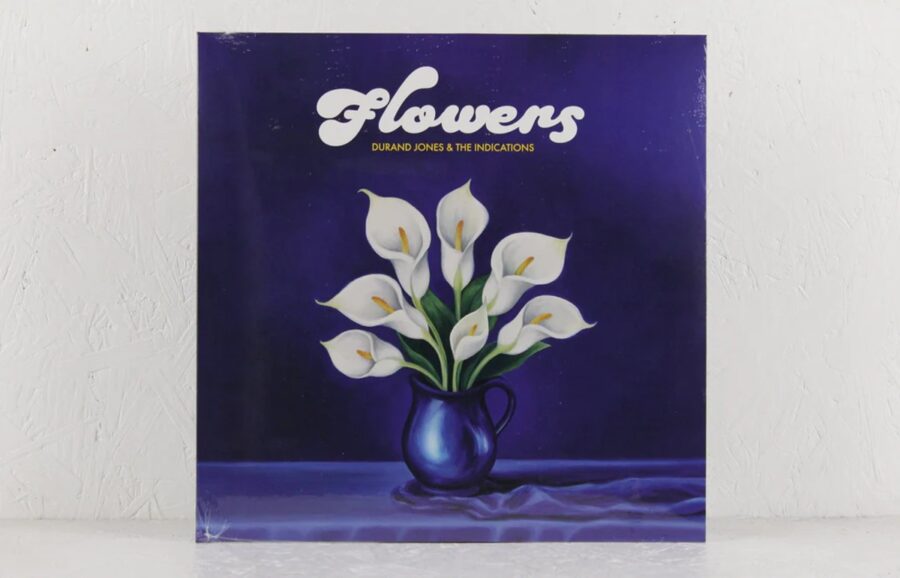
What about the vase of flowers on the cover? What made you go with those specific flowers, or was it the painting itself that you found captivating?
Blake: The story of the artwork does exemplify the most beautiful aspect of our collaboration, and how ideas expand. I brought up the idea of the theme of naturalness, greenery, and lushness. I was sending around reference photos for the artwork, and Durand said, “I think we should do some illustration.” We started playing around with that idea, and there’s this tacoria in my neighborhood that we went to a handful of times while writing Flowers. They had these calla lily paintings, these oil paintings that really struck me. I thought they were beautiful in their simplicity. It really felt like it fit.
The flowers on the album are calla lilies, which symbolize rebirth in some cultures. I think where we landed on the artwork was a very natural and collaborative effort. The artist we commissioned to do the painting really knocked it out of the park. I couldn’t be happier with how it turned out.
For a collection of musicians who have had great success in solo ventures, there seems to be a shocking lack of ego when you guys reconvene. Was that ever something any of you had to step away from consciously, or was ego never a problem?
Blake: Just a short answer, I put a lot of thought and mindfulness into it. Slowing down the process was really helpful, just so there is an opportunity for different choices and options to be discovered. For me, producing for other artists and then coming back into the Indications, it did give me a really big sense of gratitude just for how fluid the process is. We can move really quickly as a band, whereas other projects I’ve been a part of can feel like they move slowly. That’s just another process, but I do a lot of production where I’m playing guitar, bass, and drums. That can take all day, whereas when we get together as a group and put together four or six ideas in an afternoon, that feels really good. It’s super fun.
How many songs did you guys demo for Flowers?
Aaron: I don’t know how many we demoed at the end of the day. Probably 20 or so. We whittled down from there. It’s like how turtles lay 100 eggs because 30 get scooped up by birds and 20 don’t hatch. Sometimes, you write a bunch, and there are ideas that start really strong, but the jump from theoretical to actualized is this really big distance. Sometimes, things start as an idea and you’re really psyched on them, and then as they develop, some ideas that seemed less exciting emerge and turn out to be really special.
You guys are heading out on a massive tour in support of the new album. What are you guys looking forward to the most about being back out on the road? Is there a song on Flowers you’re most excited to play live?
Durand: I’m really excited for the stage production aspect of this tour. I feel like we’re really trying not to just give the same type of show we’ve given in the past. We’re trying to step up our production level and utilize all of our strengths live, just as we do in the studio. Doing some full band stuff but also some stripped down stuff, or different variants of ensembles. It just feels exciting to be willing to try these things on tour, so I’m looking forward to that aspect.
There are so many songs I’m excited to perform. We’ve recently been doing “Really Wanna Be With You” in Europe while we’re touring out there, and that was really fun to see folks dancing to it, because that’s been a fantasy ever since we demoed that song. I’m also very excited for “Without You.” I’m really intrigued by how the talking will go. I have some ideas and tricks.
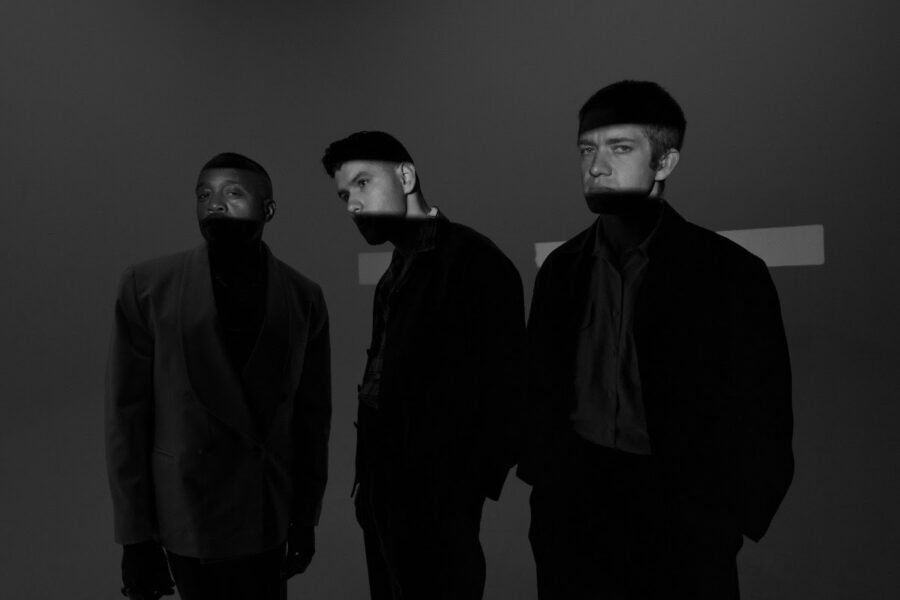
Are there any cities or venues you’re particularly excited to revisit? Are there any new venues on the horizon now that the band is more popular?
Aaron: I mean, there are a bunch of new venues for us, which will be cool. The Salt Shed in Chicago is by far going to be the biggest Chicago show we’ve ever played, so that’s exciting. I’m excited to get back to the Fox Theatre in Oakland. The Bay Area has an energy that is hard to top; it’s always a special crowd there. We have two nights at The Greek in Los Angeles, which is going to be fun. When you do two nights in a row, inevitably, there will be some people who come both nights, so it’s a good opportunity to switch up the setlist a little bit.
I’m looking forward to getting back to Toronto, too. I just love that city. I think it’s a very underrated place to hang out.
From what I’ve gathered, it seems like every element of Durand Jones and The Indications is wholeheartedly collaborative. Is there ever a point in the creative process where responsibilities are delegated, or does it always come down to a unanimous decision?
Durand: I would say absolutely, I lean on Blake and Aaron so, so much. We all have different strengths in different areas that we can utilize to make everything better. I think a big instance for this record was that Aaron was in the mixing room with Jon Castelli day in and day out, making sure that these mixes were exactly what we wanted. He was the bridge between the engineer and Blake and me. There were some things that I didn’t even have to explain; I just knew that Aaron was on it. We’ve worked together for so long that he knows me, which is super cool.
With Blake, he took it upon himself to hash some things out and really work on some things, especially after the Asheville sessions. He was working on things that were very meticulous to do, and he just hashed it out at his place and didn’t ask for help or anything. I can think of some things on “Rust and Steel” in particular, getting the chance to tell the guys who were writing it together, after we got the lyrics figured out, I was like, “Guys, I just want to halt it here and go home to lay down all these vocals the way I hear them.” Everyone was like, “Yeah, go do your thing.” They absolutely trusted me to see that idea through, and once I brought it to them, we were able to edit everything.
I think we definitely lean on each other’s individual strengths. I think it only plays up to how powerful we are collectively. This record is truly a labor of collaboration in the most organic way yet with The Indications. I’m excited to see what’s going to come next because the writing for Flowers was so much fun and felt super organic, and we weren’t under any extenuating circumstances. American Love Call was our sophomore effort, and we felt the pressure to speak and bring something to the world after the debut record. With Private Space, we were making that during the pandemic, so we were trying to make art together while isolating the entire time. We were writing songs on Zoom sessions, and then when we were in the studio together, we had to wear masks and then couldn’t hang out or watch a movie afterwards. We had to stay separate, so that was really private.
Flowers just felt really organic. We weren’t on a timeline, we didn’t feel pressure, we had a fanbase established, and the writing just felt very organic. We were able to look back on our past discography that the fans and we really loved, and embrace some of those things and be inspired by ourselves in some sense. I’m super excited to see what future songs are going to be like.
Is there a sense of relief now that Flowers is out in the world? Is there ever a chance for you guys to relax, or do tours and new demo ideas take over immediately after a record is finished?
Blake: The end of this record led right into our Australia and Hawaii tour. We got together to shoot some music videos in Chicago and had just a few days between shooting those videos and getting back on tour. I was actually just talking to Durand about trying to rest a bit. I mean, I love to write, but I think you have to take some breaks sometimes. I’ve just been trying to take a little break and just enjoy the reception of the record, and enjoy summer in Chicago because the winters are so harsh.

